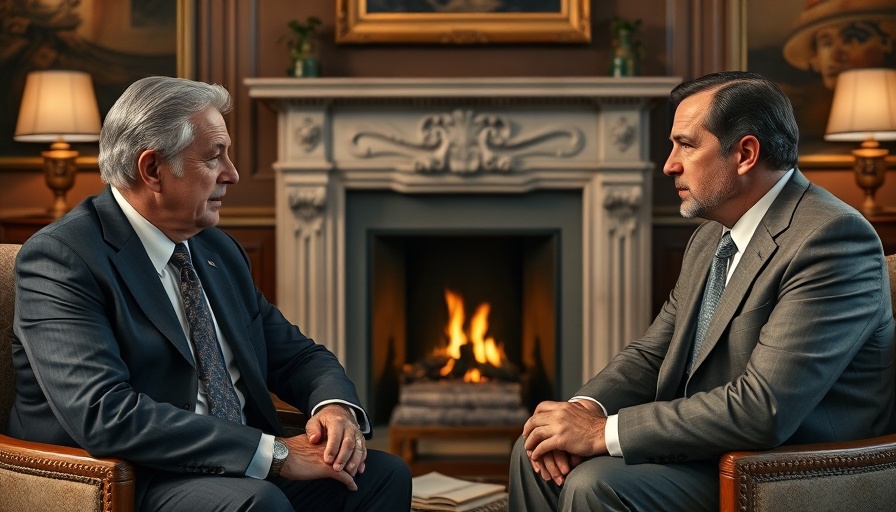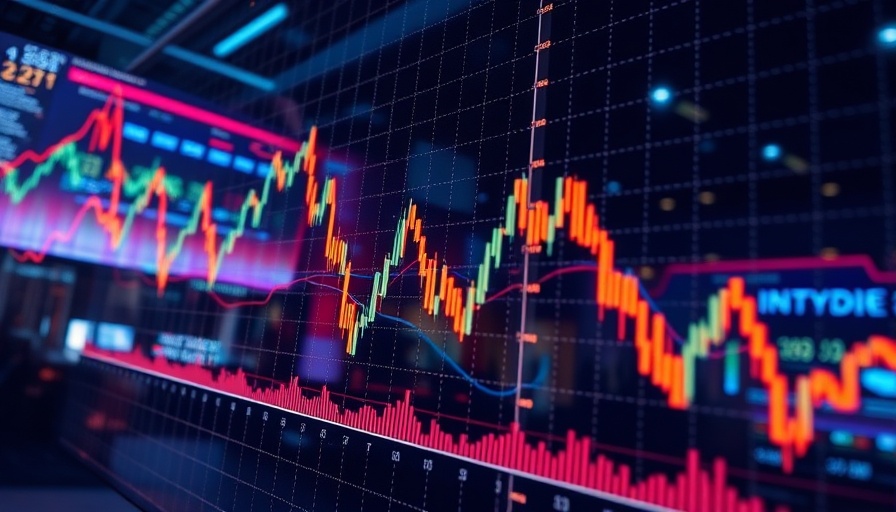
U.S. Markets React Calmly to Chaotic Trump-Zelenskyy Exchange
In an unexpected turn at the Oval Office, President Donald Trump and Ukrainian President Volodymyr Zelenskyy engaged in a publicly tense exchange before cameras, prompting immediate reactions within the political sphere and on Wall Street. Despite the uproar, U.S. financial markets demonstrated resilience, quickly shaking off initial losses after the confrontation fueled fears about U.S. diplomatic relations with Ukraine and its implications for global stability.
Understanding the Implications of Trump’s Comments
The incident encapsulated a significant shift in U.S. foreign policy, highlighting Trump's propensity to undercut allies while seemingly embracing the autocratic stance of Russian President Vladimir Putin. With Trump dismissing Ukraine's security needs and calling Zelenskyy “disrespectful,” analysts are questioning the long-term impacts on U.S.-Ukraine relations. Historically, past administrations have viewed support for democratic allies as an essential component of U.S. foreign policy; Trump's actions may be a departure from this norm, signaling a possible reevaluation of how the U.S. interacts with nations seeking to defend their sovereignty against aggressive neighbors.
Market Stability Amid Political Turmoil: A Closer Look
Financial experts noted that despite the political drama, market indices remained largely unaffected in the immediate aftermath. Investors may have assessed that the U.S. stock market had internal mechanisms to withstand political shocks. This contrasts with previous administrations where uncertainty in foreign partnerships could lead to market volatility. The rapid recovery suggests a potential growing confidence among investors regarding the underlying strength of the U.S. economy, even amidst chaotic political encounters.
Future Predictions: What Does This Mean for Democracy?
The depth of this confrontation may have broader implications for the future of democracy in U.S. foreign relations. As global leaders, particularly in Europe, expressed strong solidarity with Ukraine, it raises critical questions about the long-term strategy for maintaining democratic alliances. What remains to be seen is whether Trump's approach will influence other nations' (including those in NATO) diplomatic stances and military commitments towards Ukraine.
A Counter Perspective: Divided Congressional Reactions
The political fallout from this exchange has been sharply divided among U.S. lawmakers, illustrating a growing polarization. Republican leaders applauded Trump's aggressive stance, interpreting it as prioritizing 'America first' principles, while Democrats condemned it as a betrayal of democratic values, urging policy shifts that reaffirm commitments to allies. As the debate continues, it will be essential for voters and citizens to stay informed about bipartisan efforts or lack thereof to safeguard U.S. leadership in democratic support.
Keys for Investors: Navigating Political Events Impacting Markets
For investors, understanding the geopolitical landscape is crucial. The rapid recovery of the stock markets after this incident suggests that investors might focus not just on immediate reactions to political events but also on longer-term economic fundamentals. A prudent approach would be to keep a close eye on potential shifts in foreign policy that could create ripples in global trade dynamics and market stability.
This chaotic confrontation serves as a reminder that while the political stage may be perilous, the resilient U.S. economy and markets often adapt, presenting opportunities for informed investors. Staying grounded in economic indicators amid political exchanges will be key to navigating this turbulent terrain.
 Add Row
Add Row  Add
Add 




Write A Comment